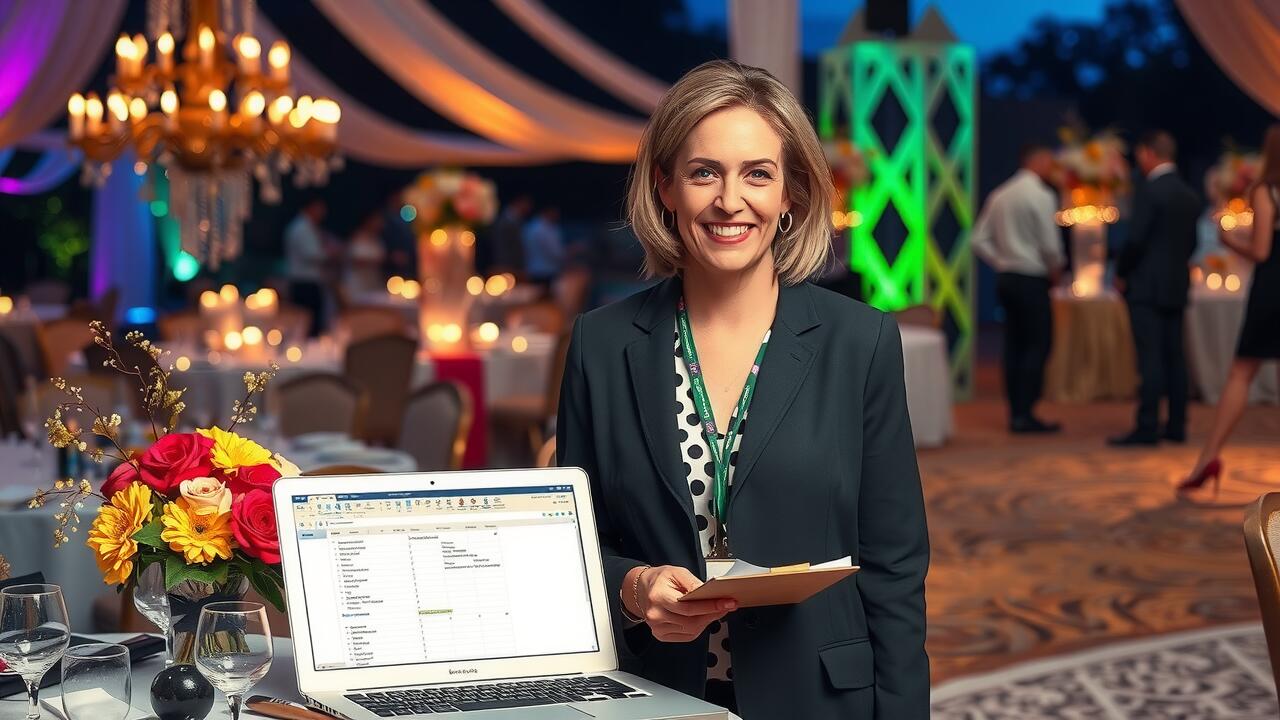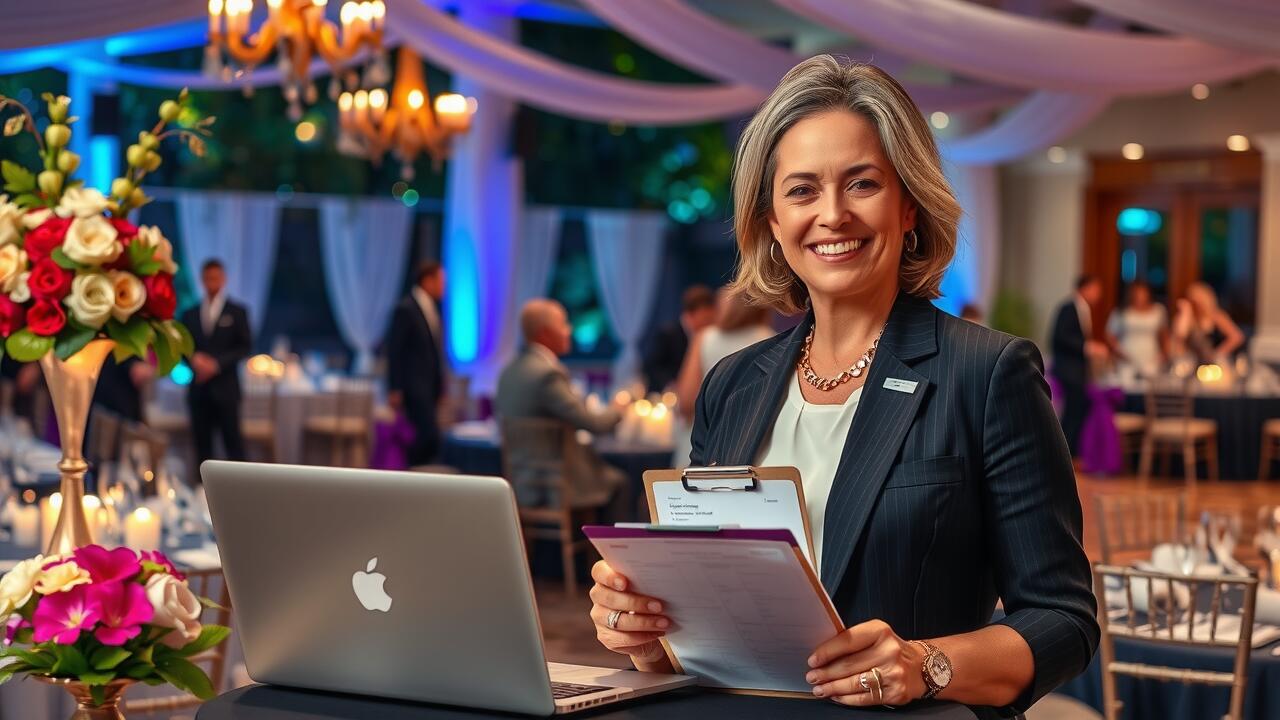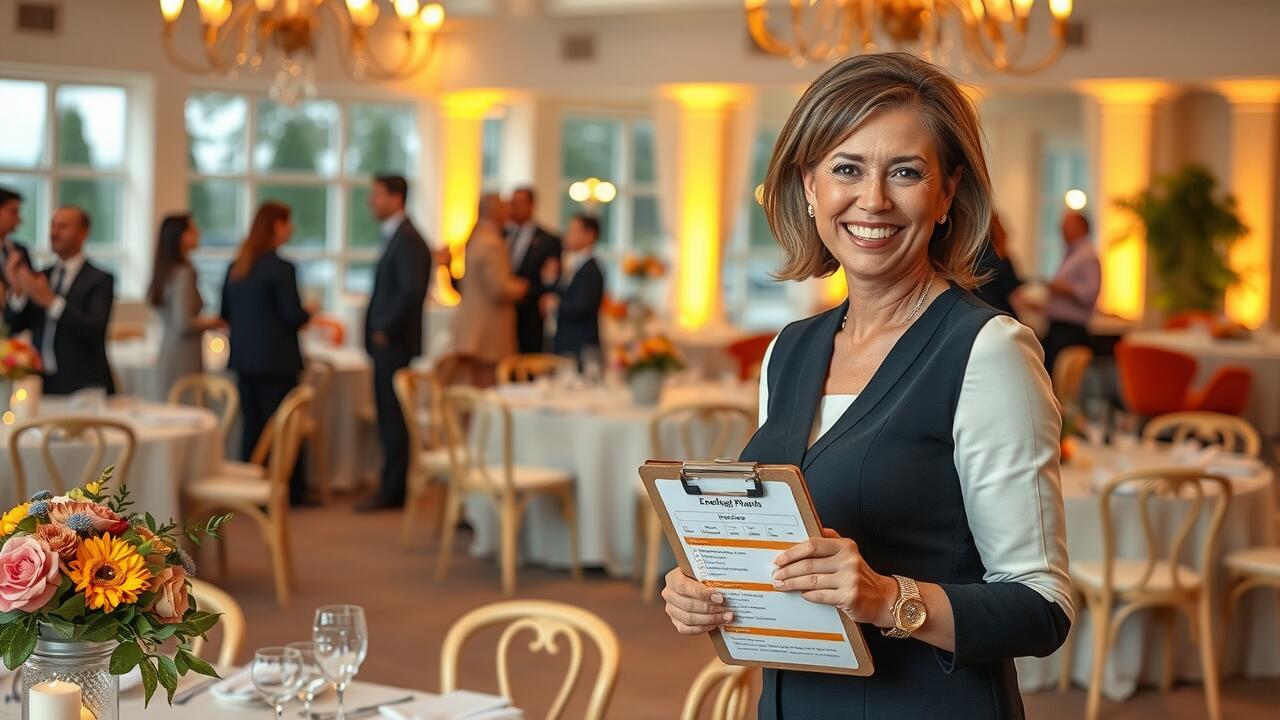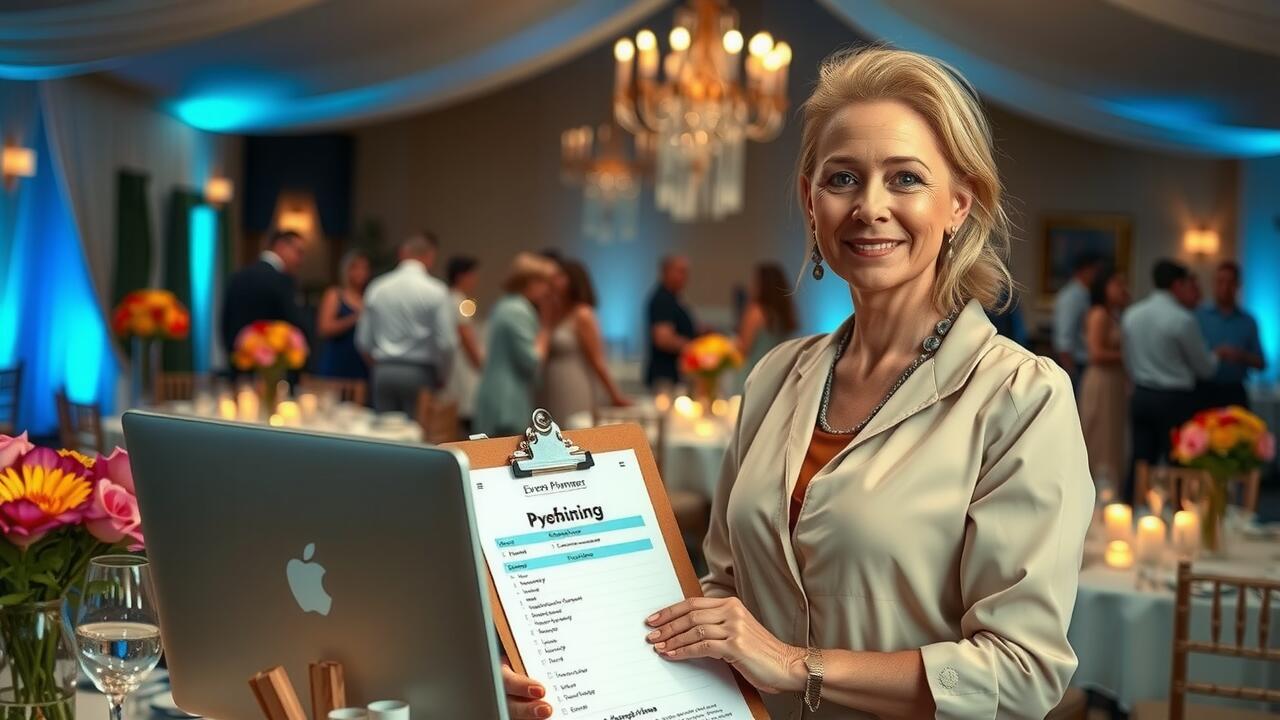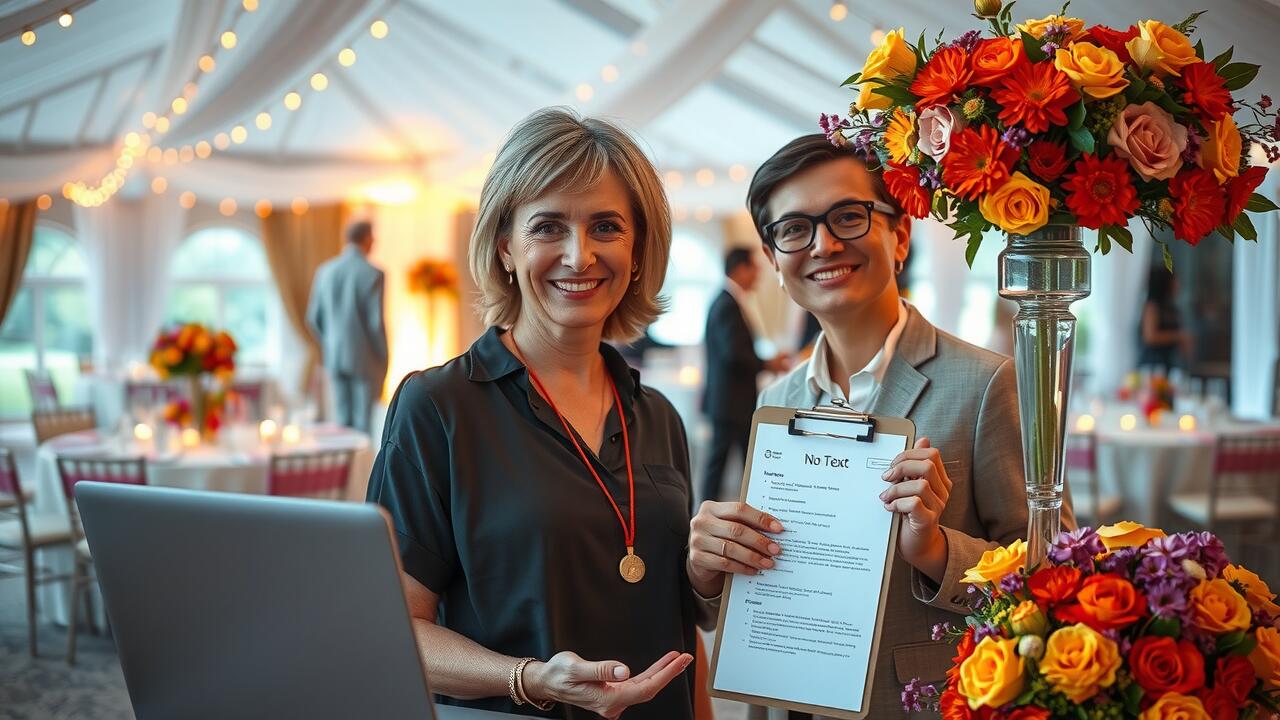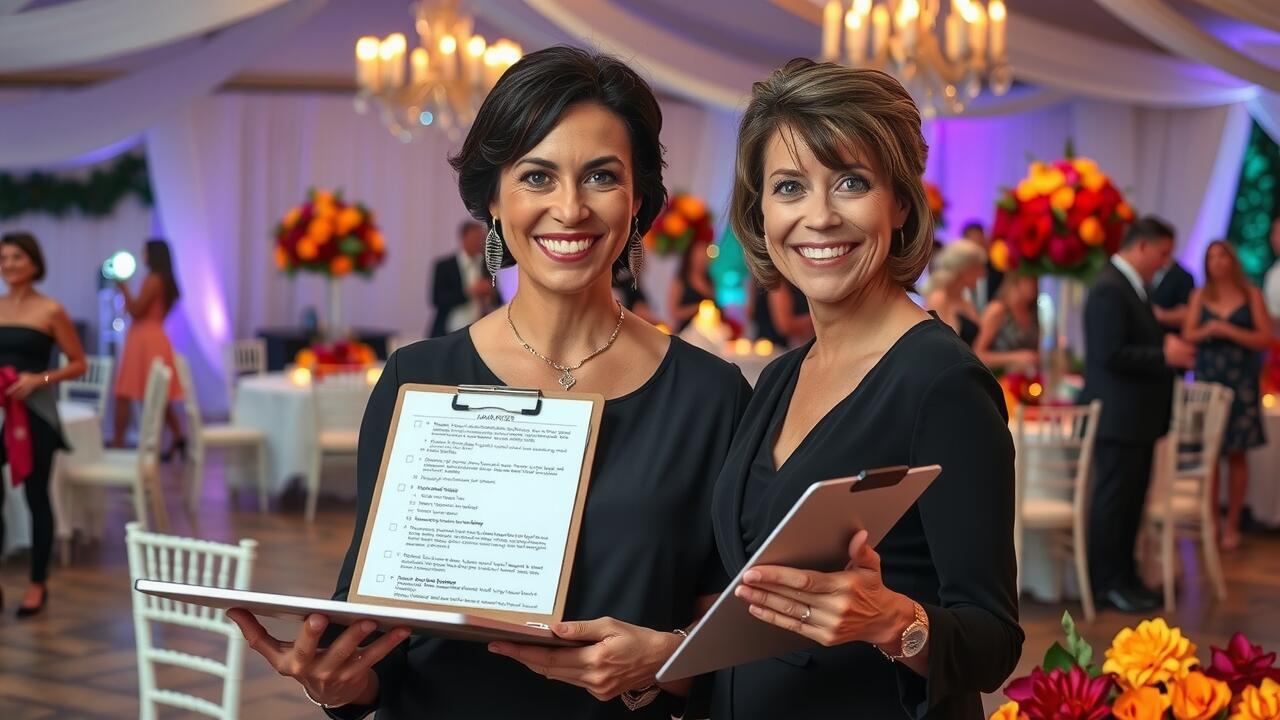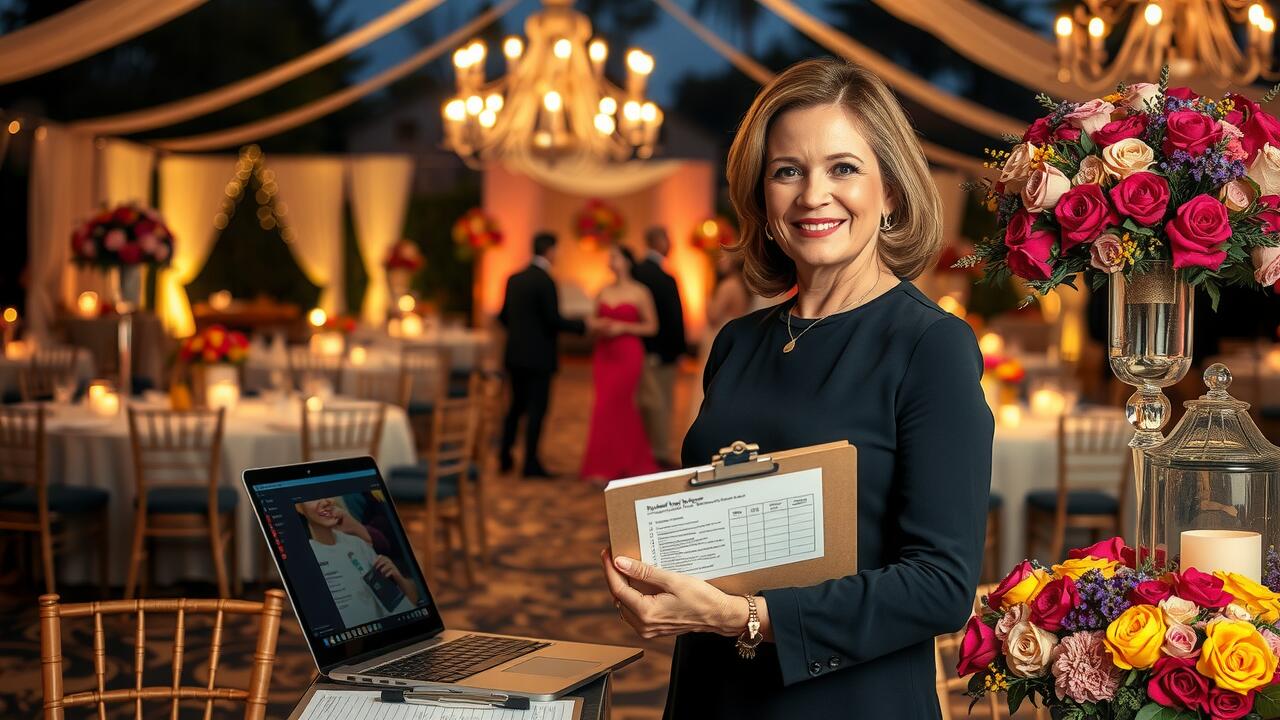
Selecting Vendors and Suppliers
Choosing the right vendors and suppliers is crucial for a successful event. Start by identifying your specific needs, ranging from catering and audio-visual services to decorations and transportation. Research local options by searching for "Event Planning near me." This allows you to discover businesses with a good reputation in your area, ensuring that you can easily communicate and coordinate with them throughout the planning process. Look for reviews and testimonials to gauge their reliability and quality of service.
Once you have a shortlist of vendors, prioritise contacting them for quotes and availability. This step will help you understand their pricing structures and suitability for your event. It's wise to schedule meetings or phone calls to discuss your requirements in detail. During these conversations, pay attention to their customer service and responsiveness. The way they communicate and handle your inquiries can be indicative of how they will perform during the event itself.
Evaluating Quality and Reliability
When selecting vendors and suppliers for your event, quality and reliability stand as critical factors. Assessing their reputation involves checking reviews, testimonials, and past work samples. Engaging in conversations with previous clients can provide valuable insights into their experiences. Look out for consistency in their service delivery. Reliability can often be gauged through their responsiveness during initial communications, which will offer a glimpse into how they operate under pressure.
Conducting interviews with potential vendors helps further evaluate their qualifications. Pose specific questions regarding their processes, how they handle unexpected challenges, and their contingency plans. Researching local options through queries such as "Event Planning near me" can yield a range of suppliers with established reputations. This local focus often facilitates easier communication and potentially improves logistical coordination, ensuring peace of mind as the event day approaches.
Planning the Event Programme
Planning the event programme is a critical step that lays the groundwork for a successful gathering. Consider the overall theme and objectives of the event to ensure that the activities align with the desired goals. Each segment should be purpose-driven, whether it's a keynote speaker session, a workshop, or entertainment. Engaging sessions can increase audience participation and enhance the overall experience. Researching "Event Planning near me" may provide local insights into popular formats and structures that resonate with your target demographic.
When structuring activities and sessions, balance is vital. A mix of informational presentations and interactive segments can cater to varied interests while maintaining energy levels throughout the event. Allocate time for networking and breaks, allowing attendees to mingle and recharge. Incorporating feedback from past events can also inform session timings and formats, ensuring that the programme remains relevant and engaging for all participants.
Structuring Activities and Sessions
To create an engaging event programme, it is essential to structure activities and sessions that cater to the diverse interests of attendees. Begin by identifying key themes and objectives that align with the overall purpose of the event. This establishes a framework for choosing relevant activities. Incorporate a mix of formats, such as workshops, panel discussions, and networking opportunities, to keep participants engaged throughout the day. Consider the timing of each session carefully to maximise participation and avoid scheduling conflicts.
Audience participation should also play a pivotal role in structuring sessions. Interactive elements, such as Q&A segments or hands-on workshops, can enhance the attendee experience and ensure that the content resonates. Seek feedback from previous events to inform your choices. Resources for finding reputable facilitators may include local listings or searching for "Event Planning near me," which can provide options tailored to your specific needs and location. Balancing the programme's flow with breaks and socialising time will help maintain energy levels and foster connections among attendees.
Promoting the Event
Promoting an event effectively is crucial for its success. A multi-channel approach often yields the best results. Utilising social media platforms allows event details to reach a broader audience. Crafting engaging content helps generate excitement around the event. Additionally, leveraging email marketing can directly reach interested participants. Collaborating with local influencers can also enhance visibility within the community.
Exploring strategies such as online advertising and search engine optimisation is essential. This includes using keywords that potential attendees might search for, like "Event Planning near me." Establishing partnerships with local businesses can create cross-promotion opportunities. Engaging with local media outlets can further amplify the event's reach. By employing varied promotional techniques, the event is more likely to attract the desired audience.
Effective Marketing Strategies
Utilising effective marketing strategies is essential for attracting attendees and sponsors to your event. Engaging with your target audience through multiple channels can significantly enhance visibility. Social media platforms, email newsletters, and local community boards provide excellent opportunities for promotion. Creating eye-catching graphics and compelling content captures interest. Collaborating with local influencers or businesses can amplify your reach and lend credibility to your event.
Search engine optimisation (SEO) also plays a crucial role in your marketing efforts. Incorporating relevant keywords, such as "Event Planning near me," into your website and promotional materials helps improve your search rankings. This tactic ensures that potential attendees can easily find your event when searching online. Regularly updating your content keeps it fresh and relevant, further enhancing its appeal and improving engagement rates.
FAQS
What is the first step in structuring an event plan?
The first step in structuring an event plan is to clearly define the event's objectives and goals, which will guide all subsequent planning decisions.
How do I choose the right vendors and suppliers for my event?
To choose the right vendors and suppliers, evaluate their quality and reliability by reviewing their past work, checking references, and reading client testimonials.
What should I consider when planning the event programme?
When planning the event programme, consider the target audience, the event’s goals, the flow of activities, and the time allocated for each session to ensure a well-structured and engaging experience.
What are some effective marketing strategies for promoting my event?
Effective marketing strategies for promoting your event include utilising social media platforms, creating a dedicated event website, sending email newsletters, and engaging with local media for coverage.
How can I ensure that all activities and sessions run smoothly during the event?
To ensure that all activities and sessions run smoothly, create a detailed schedule, communicate clearly with all team members and vendors, and have contingency plans in place for unexpected issues.
